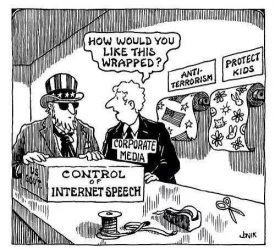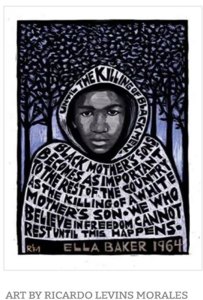Friday the FCC voted to start a public comment period on a proposal that may be the cruelest ever to come out of the agency. The proposal seeks to “reform” Lifeline, the program that provides a small subsidy so that low-income Americans can afford broadband service.
By Gigi Sohn
 Illustration by Alex Castro / The Verge
Illustration by Alex Castro / The Verge
Federal Communications Commission chairman Ajit Pai is setting a record pace for deregulating the communications industries. Since becoming chairman in January, he has, among other things, reinstated an outdated rule that allows TV companies like Sinclair to become massive, proposed to deregulate broadband and eliminate the agency’s popular net neutrality rules, proposed lowering the speed standard for broadband, refused to defend the agency’s decision to lower outrageous prison phone rates, and weakened the programs that provide subsidies for broadband for schools and libraries and the poor.
Believe it or not, things are about to get worse this month. Starting with the FCC’s open meeting tomorrow, the agency is poised to approve or propose no fewer than four decisions that will deregulate consolidated industries, remove consumer protections, and widen the digital divide.
Media Ownership Rules
Local over-the-air broadcasting remains a potent force for shaping public opinion, particularly on electoral matters and issues affecting local communities. As a testament to that power, in 2016 candidates spent $20.6 billion on political ads on local TV.
The FCC’s media ownership rules already allow for significant consolidation, but that isn’t enough for Pai. Tomorrow the agency will vote to weaken or eliminate rules that, among other things, limit cross-ownership of radio and TV stations in one market; prevent ownership of two of the top four TV stations in a market and require at least eight separately owned broadcast voices in a market; and prevent companies from avoiding the rules through business arrangements that for all intents and purposes give control of one station to another.
I’m less concerned about the effect these changes will have on large markets, but the impact on medium and smaller markets like Fort Wayne, Indiana; Augusta, Georgia; and Bozeman, Montana will be striking. It’s conceivable that in those markets there will be just two or three broadcasters left. The result will be less local coverage and less viewpoint diversity, which makes for a less-informed citizenry.
Lifeline
Tomorrow, the FCC will vote to start a public comment period on a proposal that may be the cruelest ever to come out of the agency. The proposal seeks to “reform” Lifeline, the program that provides a small subsidy so that low-income Americans can afford broadband service. The FCC made Lifeline a broadband-only program in 2016, and sought to achieve lower prices and better service by making it simpler for companies to become Lifeline providers. It set a budget for the program and put in place protections so that no eligible American would automatically be denied a subsidy.
Pai’s proposal will gut Lifeline in many ways, but I’ll highlight some of the worst. First, he proposes to make the subsidy available only to so-called “facilities-based” companies — those that own their communications infrastructure. The problem is that about 70 percent of current Lifeline subscribers receive service from companies that resell service from facilities-based companies. Under Pai’s proposal, those subscribers would no longer be able to receive a subsidy for their Lifeline provider of choice.
Second, Pai proposes to eliminate the mechanism that encourages Lifeline competition. At the same time, he doesn’t propose to change the mechanism that allows companies to exit the program. This will leave a handful of Lifeline providers, that will be free to provide lousy service at high prices.
Third, Pai proposes a hard budget cap that, if exceeded, would result in subsidies being reduced or eliminated. Even worse, he proposes to prioritize rural residents over urban residents, should there be a budget shortfall. Pai also asks whether the cap should be based on the amount of money spent in prior years, which is far less than the current $2.25 billion budget.
You can see where this is going: reducing the supply of Lifeline providers will raise prices, reduce demand, and thereby reduce the hard budget cap. With these changes, it’s not hard to see the program shriveling up and dying within a decade.
Discontinuation of Copper Networks
Millions of Americans still rely on copper telephone and broadband networks, particularly in rural areas. Incumbent telephone companies have started to discontinue use of those networks and replace them with faster internet service, although in some cases, the latter doesn’t work as well as copper (for example, the ability to work without electrical power). In recognition of this, in 2015, the FCC adopted rules to ensure that consumers were protected should telephone companies decide to make changes to or replace their copper service.
Among other things, the 2015 rules required companies to give consumers 180 days of notice before making changes to their copper networks and required that carriers evaluate the effects that changes in infrastructure would have on a community and the services it currently receives.
Seem reasonable? Not to Pai. His proposal would eliminate the notice requirement and water down the evaluation requirement in a way that renders it meaningless. After tomorrow’s vote, incumbent telephone companies will be able to discontinue copper services at will, with no notice or analysis of its impact on its customers.
Net Neutrality
The moment that supporters of a free and open internet have dreaded will come to pass on the day before Thanksgiving. Pai will circulate to his fellow commissioners a draft of an order that would eliminate the FCC’s oversight over broadband providers and either severely curtail or more likely eliminate the strong 2015 net neutrality rules. The full commission will vote on that order at its December 14th meeting, and, barring a miracle, net neutrality and the FCC’s ability to protect consumers and competition in the broadband market will be no more.
The Last Word
If you are a supporter of fast, fair, open, and affordable networks, November will be a bad month. And December will be, too. So, keep calling your representatives and senators and tell them that you oppose pretty much everything this FCC is doing.
Gigi Sohn served as counselor to former FCC chairman Tom Wheeler from November 2013 to December 2016.
Media for the people! Learn more about Rise Up Times and how to sustain
People Supported News.
Follow RiseUpTimes on Twitter RiseUpTimes @touchpeace
No Peace! No Justice! Please share this post.
The contents of Rise Up Times do not necessarily reflect the views of the editor.
By Rise Up TimesPublished On: November 19th, 2017Comments Off on The FCC is having a terrible month, and consumers will pay the price



